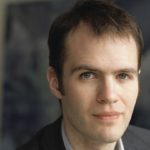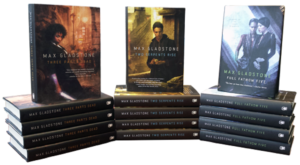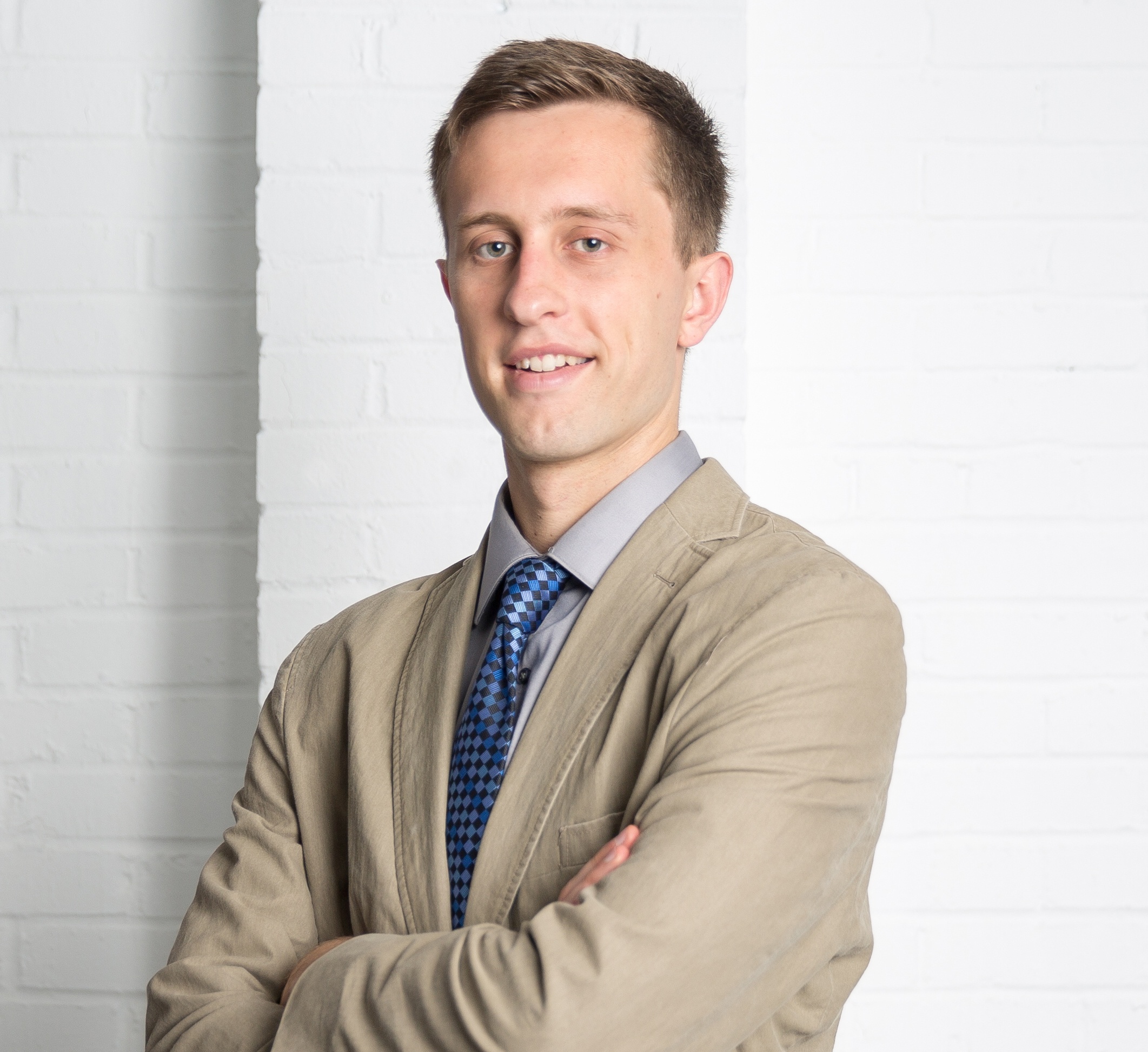Our global financial system, just like a deity, is praised and lauded during times of growth and cursed during recessions like the recent financial crisis. Author Max Gladstone speaks to the nervousness people feel about the way capitalism works in his Craft Sequence book series.  Max’s series was inspired by the beginning of the financial crisis a decade ago. And the series continues today as an allegory for the relationship between banks, corporations and consumer.
Max’s series was inspired by the beginning of the financial crisis a decade ago. And the series continues today as an allegory for the relationship between banks, corporations and consumer.
“At that particular moment, that force of large capital movements was so felt, was so physical, that the natural analogies I started reaching for to understand it were analogies of magic and mysticism and theology,” Max said.
Craft Sequence: An Overview
In the urban fantasy world Max has created, gods get their power through interactions between people—most notably humans with magic called craftsfolk. To set the stage for the first book, these powered humans questioned the gods’ existence and started a war. The two sides fought until reaching a truce, albeit a tense one with conflicting forces arrayed against one another.
The situation leaves ordinary humans with a tough dilemma: How do we interact in a world that is in turn exerting a massive, unseen force on us?
 Max describes their truce as a “global distributed capital system that has immense power.” And he believes his fictional system represents today’s corporate-driven world pretty accurately. But the situation leaves the ordinary humans with a tough dilemma: How do we interact in a world that is in turn exerting a massive, unseen force on us?
Max describes their truce as a “global distributed capital system that has immense power.” And he believes his fictional system represents today’s corporate-driven world pretty accurately. But the situation leaves the ordinary humans with a tough dilemma: How do we interact in a world that is in turn exerting a massive, unseen force on us?
Max’s six books take us through different realities brought about by our financial system. Book one, for example, where a craftswoman sets out on a mission to resurrect a dead god, reveals a lot about how bankruptcy works.
Future books in the series focus on externalization of risk, offshore banking, startup culture and gentrification, exploring the impact these animal, anarchistic forces have on our shared communities.
Examining The Forces at Work
In the Craft Sequence, the gods are enormous, influential beings, often taking the form of towering skyscrapers. But—just like our corporations—they’re slow to respond and not all-powerful. Max gives craftsfolk, the other major force, supernatural powers that sometimes contrast with the corporate gods. But unlike the gods, a legalistic framework binds the craftsfolk.
In this world, all financial transactions are transacting pieces of soul, you’re literally giving away a part of your soul in order to get something back.
The problem is, neither the gods nor the other human individuals in the series abide strictly by the same framework. There are different rules for different people. The priests, for instance, must maintain their community and way of life over the long-term while still retaining some faith in the temporal will of the gods. And those gods demand that all humans give them a piece of their soul in return for material comfort. Sound familiar?
“In this world, all financial transactions are transacting pieces of soul, you’re literally giving away a part of your soul in order to get something back,” Max says.
Spending Your Soul
In Max’s world, some humans see “giving away their soul” for money as a negative, forced on them by society. Others worry a bit less about attaining material comfort and freely give their soul to others through charitable works.
These people don’t receive much in return. But they often end up happier, since they aren’t perpetually selling themselves to the gods. But far from having a true MindShift, even selfless people have to operate in a world set up by the legalistic framework of lawyers and bureaucrats—a world subject to cyclical booms and busts loosely based on human interaction.
“Everything is able to be bargained and traded, everything is able to be extracted,” as Max puts it.
People believe they can’t escape the dilemma of having to sell their soul and time for money in the real world too. While you have to spend your time doing something, no one should feel like they have to compromise their values, their dreams, just to make money.
It’s a symbol of my life, it’s a coupon for however many hours or however many minutes of my human existence I spend in a very limited way on this earth.
We have the option to see money as something more personal, as power lets us buy our time back. Even Max agrees we don’t necessarily need to construct a fantasy world to see that the way money is “supposed to work” doesn’t correspond to how people truly feel about it.
“It’s a symbol of my life, it’s a coupon for however many hours or however many minutes of my human existence I spend in a very limited way on this earth,” Max says about money. “This is not really the way that economists will talk about money working, but it’s really the way that it feels to a lot of people.”
The views and opinions expressed are those of the guest author and do not necessarily reflect the views and opinions of MindShift.money.
image credits: maxgladstone.com

